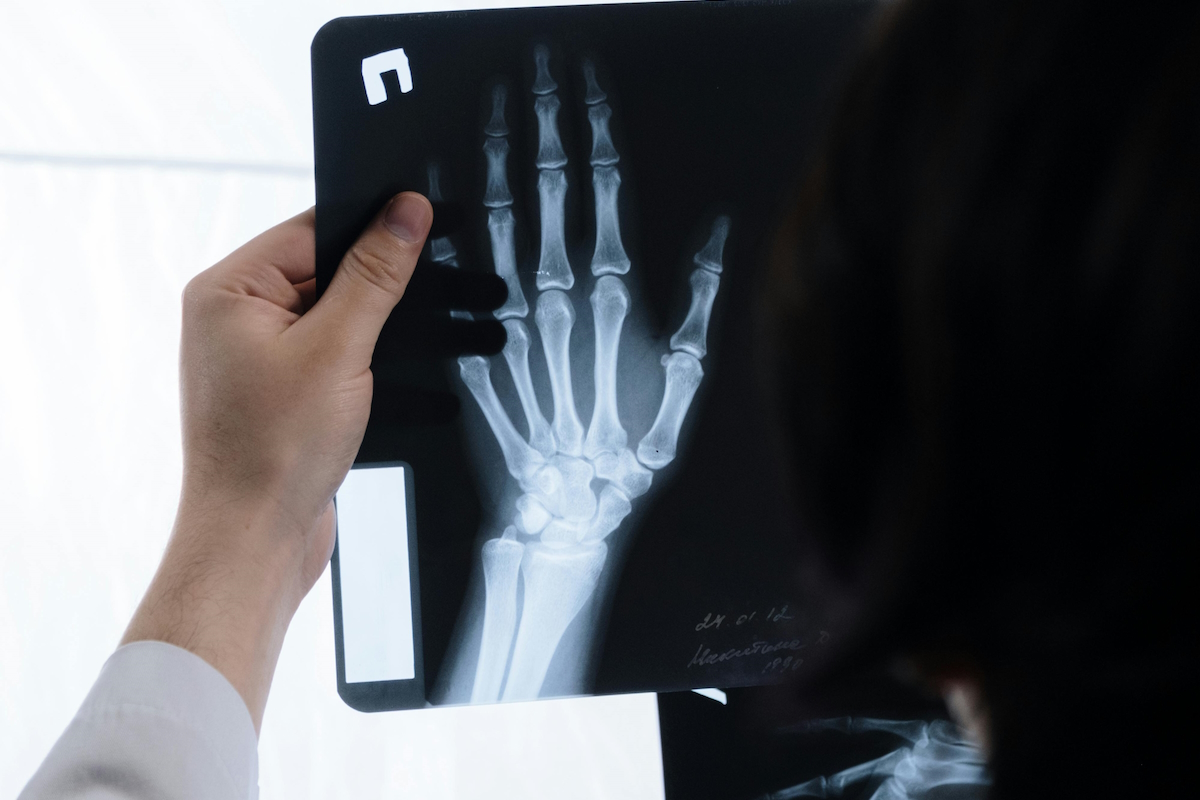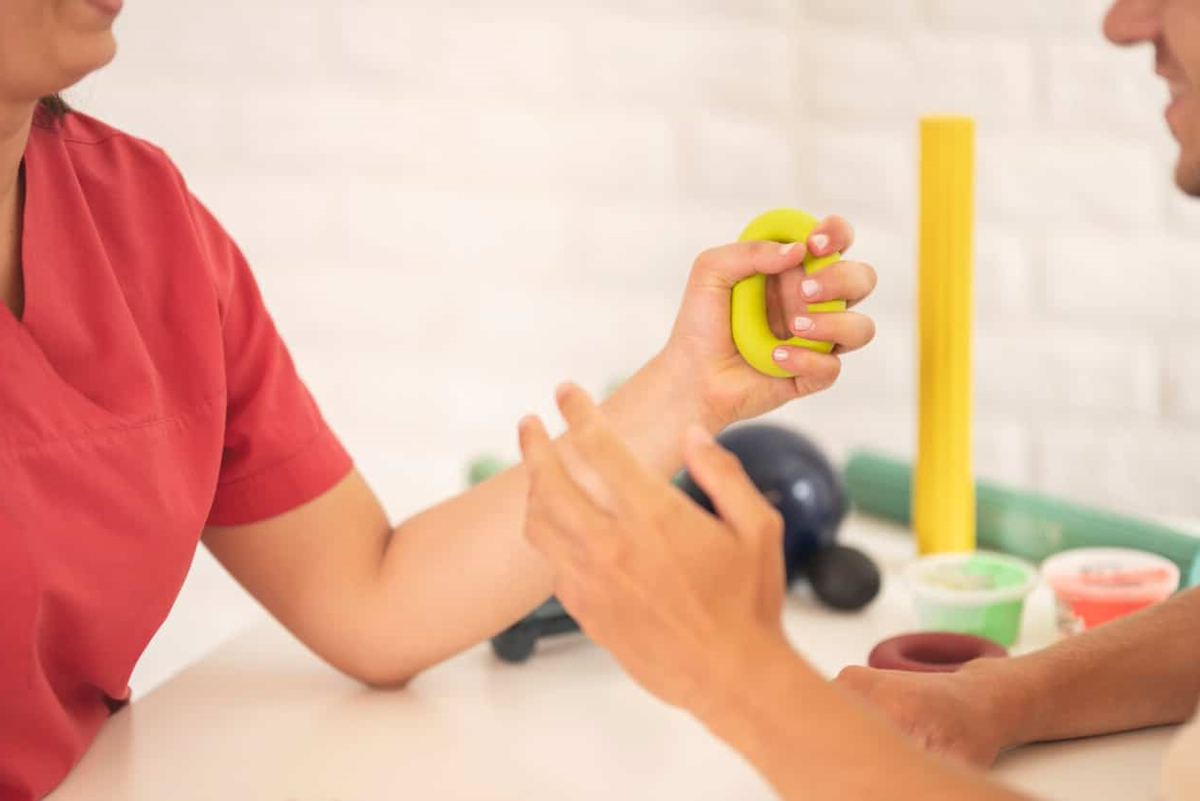- Orthopedic Hand Surgery Can Provide Relief for These Symptoms
- Get Ready for Hand Surgery: 11 Tips To Consider Now
- 1. Understand Your Orthopedic Surgery Procedure
- 2. Get Pre-Operative Physical Examination and Tests
- 3. Attend Pre-Operative Appointments
- 4. Adjust Medication Use Before Surgery
- 5. Prepare Your Home for Recovery
- 6. Prepare Emotionally and Mentally
- 7. Arrange Transportation To and From the Surgery
- 8. Follow Pre-Surgery Dietary Guidelines
- 9. Prepare for Hand Therapy and Exercises
- 10. Follow Post-Surgery Pain Management
- 11. Stay Positive and Patient During Recovery
- Fort Worth Hand Center Is Your Preferred Orthopedic Surgery Center
We understand that preparing for orthopedic surgery can feel overwhelming. This is especially true for something as essential as relieving hand pain related to anything from carpal tunnel symptoms and finger fractures to broken bones, impingements, hand deformities, and more. However, orthopedic hand surgery can significantly improve hand function, alleviate pain, and help restore quality of life. Proper preparation for surgery is essential to get the most out of the experience and ensure a smooth recovery and optimal outcome.
New patients who visit with our specialists at Fort Worth Hand Center have many questions about what orthopedic surgery means, what we do, what they can do to prepare, and what surgery day might look like. In this blog article we will review some of those concerns.
Orthopedic Hand Surgery Can Provide Relief for These Symptoms
- Limited range of motion
- Joint stiffness
- Pain in your fingers, hands, and wrists
- Numbness
- Pain from deformities
- Locking fingers
- Swelling, burning, or tingling sensations
- Sprains, strains, fractures
- Weakness when gripping objects with one or both hands
Get Ready for Hand Surgery: 11 Tips To Consider Now
Here’s a comprehensive guide to help you get ready for orthopedic hand surgery.
1. Understand Your Orthopedic Surgery Procedure
Before your surgery day arrives, do your due diligence to understand your specific hand procedure. As previously mentioned, orthopedic hand surgeries can address various issues, such as carpal tunnel syndrome, arthritis, tendon injuries, and fractures. Discuss with your surgeon about the specific technique being used, the expected duration, and how it will alleviate your hand pain. You may also want to ask:
- What will the recovery process look like?
- What can I expect in terms of function and pain levels after surgery?
- What are the risks associated with the procedure?
- How long will I need assistance with daily activities?
2. Get Pre-Operative Physical Examination and Tests
Your doctor may require pre-operative tests, such as blood tests, X-rays, or an MRI, to understand your overall health and get detailed images of your hand structure. This ensures there are no underlying conditions that might complicate surgery. It is also critical to update your surgeon on any medical conditions, allergies, or medications you are taking, as some can interfere with surgery or post-surgical recovery.

3. Attend Pre-Operative Appointments
Many surgeons schedule pre-operative appointments to review your health and prepare you for what to expect during and after surgery. Use these appointments to ask questions and discuss any concerns about anesthesia, pain management, or the recovery timeline. These appointments are crucial because they help you:
- Clarify the surgery day schedule and hospital or clinic protocols.
- Understand anesthesia options and side effects.
- Discuss potential risks specific to your health or the procedure.
- Review post-operative care, including when you can start hand therapy or exercises.
4. Adjust Medication Use Before Surgery
Believe it or not, certain medications can impact the effectiveness and safety of orthopedic surgery, particularly those that thin the blood or affect blood pressure. Common medications to review include:
- Blood thinners — If you take medications like aspirin, ibuprofen, or prescription anticoagulants, your doctor may ask you to stop taking them several days before surgery.
- Diabetes medications — High blood sugar can affect healing, so adjustments may be necessary.
- Supplements — Some herbal supplements, such as St. John’s Wort or garlic, may interfere with key procedures such as anesthesia or increase bleeding risks.
5. Prepare Your Home for Recovery
Once you are home, you will want everything set up to make your recovery as comfortable as possible.
- Create a dedicated recovery space — Set up a comfortable area to rest and access essentials.
- Arrange help — For the first few days, you may need assistance with daily tasks like cooking, dressing, or even bathing, especially if the surgery is on your dominant hand.
- Stock up on groceries and medications — To avoid extra trips, purchase groceries and any over-the-counter pain medications or supplies your surgeon recommends.
- Plan for limited hand use — Think about activities you usually do with your hands and plan around them. For example, use voice-activated devices and consider ready-made meals to avoid cooking.

6. Prepare Emotionally and Mentally
Surgery can be a stressful experience, but it does not have to be. Practicing relaxation techniques like deep breathing exercises or mindfulness meditation can help alleviate pre-surgery anxiety. Talking to your surgeon about any concerns or uncertainties can provide peace of mind. Remember, you are undergoing orthopedic surgery to relieve hand pain and improve function, so focusing on the positive outcomes can help you stay calm and optimistic.
7. Arrange Transportation To and From the Surgery
Most orthopedic hand surgeries require anesthesia, which means you will not be able to drive afterward. Arrange for a friend or family member to transport you to and from the hospital. Additionally, if you have a pet or young children at home, consider arranging care for them in advance, as you may need to focus on recovery and rest after surgery.
8. Follow Pre-Surgery Dietary Guidelines
For most surgeries, you will need to fast for at least eight hours before the procedure. This is especially important if you receive general anesthesia. Follow your doctor’s specific instructions, as some may allow you to drink water up to a few hours before surgery. If you take medications in the morning, ask if you should still take them and if they can be taken with a small amount of water.
9. Prepare for Hand Therapy and Exercises
Hand therapy and exercises are essential components of orthopedic hand surgery recovery. Depending on the procedure, your doctor may prescribe exercises to improve mobility and strength. A guided recovery program may also recommend physical or occupational therapy. Preparing mentally and physically for this commitment is essential, as it can significantly impact your long-term hand function and the overall success of the surgery.

10. Follow Post-Surgery Pain Management
Managing pain after surgery is essential to a smooth recovery. Your surgeon will likely prescribe pain medication, but there are also non-pharmacological methods to consider:
- Ice packs — Applying ice can help reduce swelling and numb pain.
- Elevation — Keeping your hand elevated above your heart can minimize swelling.
- Follow-up care — Attend all scheduled follow-up appointments so your surgeon can monitor your healing and adjust your pain management plan.
11. Stay Positive and Patient During Recovery
Orthopedic hand surgery recovery can vary in duration, depending on the procedure. Recovery times can range from a few weeks to several months for more complex orthopedic surgery. During this period, follow your surgeon’s advice closely, attend all therapy sessions, and monitor your hand for signs of infection or complications. Be patient with yourself and celebrate small milestones, such as regaining range of motion or decreasing pain levels.
Fort Worth Hand Center Is Your Preferred Orthopedic Surgery Center
Orthopedic surgery is a significant step toward relieving hand pain and improving quality of life. Preparing thoroughly and thoughtfully can help you approach surgery confidently and ease your recovery. By understanding the procedure, adjusting your medications, preparing your home, and staying patient throughout recovery, you set yourself up for the best possible outcome. This journey may have its challenges, but with preparation and resilience, you will be on the path to improved hand health and a symptom-free future.
From fingertips to elbows, Fort Worth Hand Center offers expert diagnosis of injuries, chronic conditions, and degenerative diseases. If surgery is your best treatment, our orthopedic physicians operate in state-of-the-art, accredited surgery centers. We care about our patients and strive to provide the best care.
To learn more or to schedule an appointment, call 817-877-3277 or complete the form below.
"*" indicates required fields
Prior to starting any new treatment or if you have questions regarding a medical condition, always seek the advice of your doctor or other qualified health provider. This information is not a substitute for professional medical advice.
Fort Worth Hand Center serves the DFW area, including Burleson, Colleyville, Crowley, Dallas, Dalworthington Gardens, Edgecliff Village, Euless, Everman, Flower Mound, Forest Hill, Fort Worth, Grand Prairie, Grapevine, Haltom City, Haslet, Hurst, Keller, Kennedale, Lakeside, Lake Worth, Mansfield, Newark, North Richland Hills, Pantego, Pelican Bay, Richland Hills, River Oaks, Saginaw, Sansom Park, Southlake, Trophy Club, Watauga, Westlake, Westover Hills, Westworth Village, White Settlement, Arlington, Azle, Bedford, Benbrook, Blue Mound, and all of North Texas.
*Patient names and/or photos may be changed to protect patient confidentiality.



